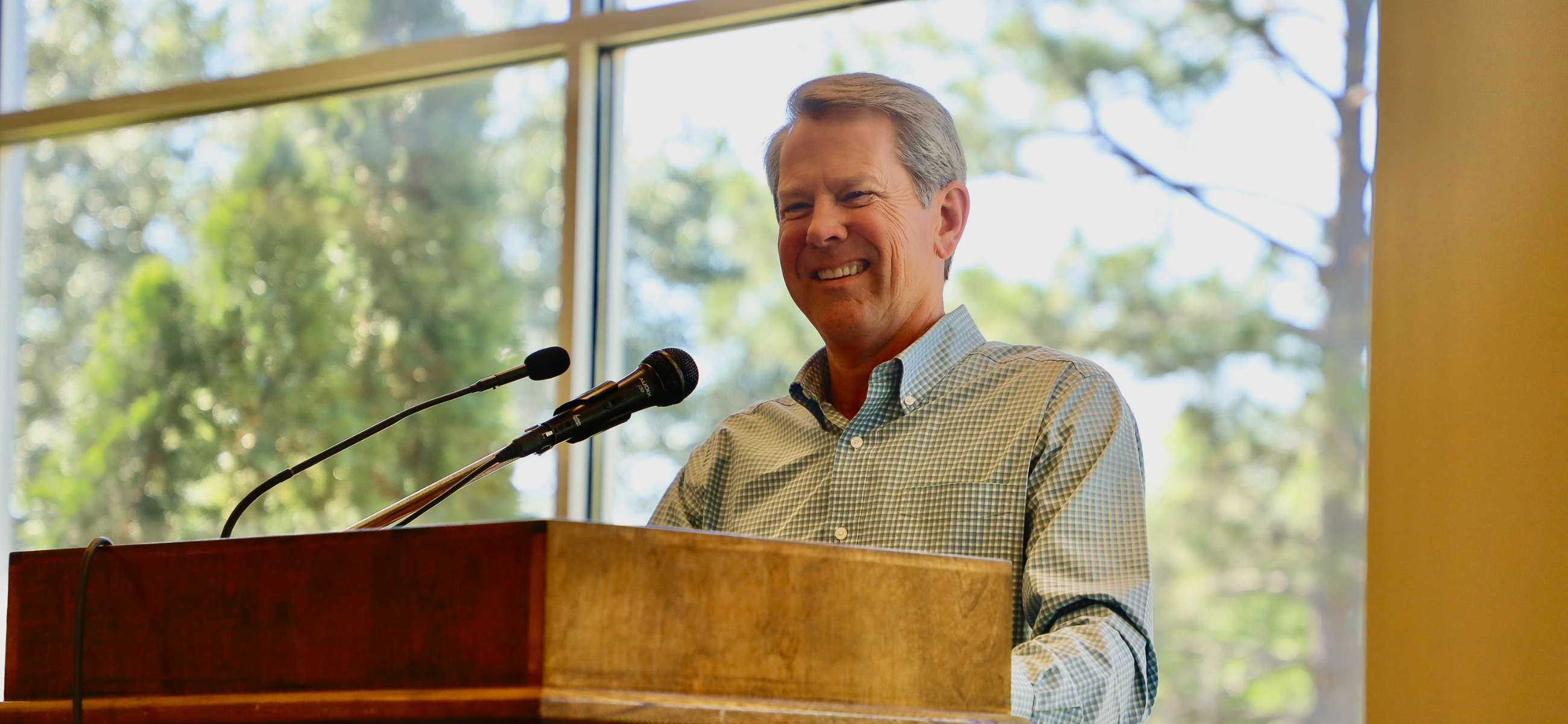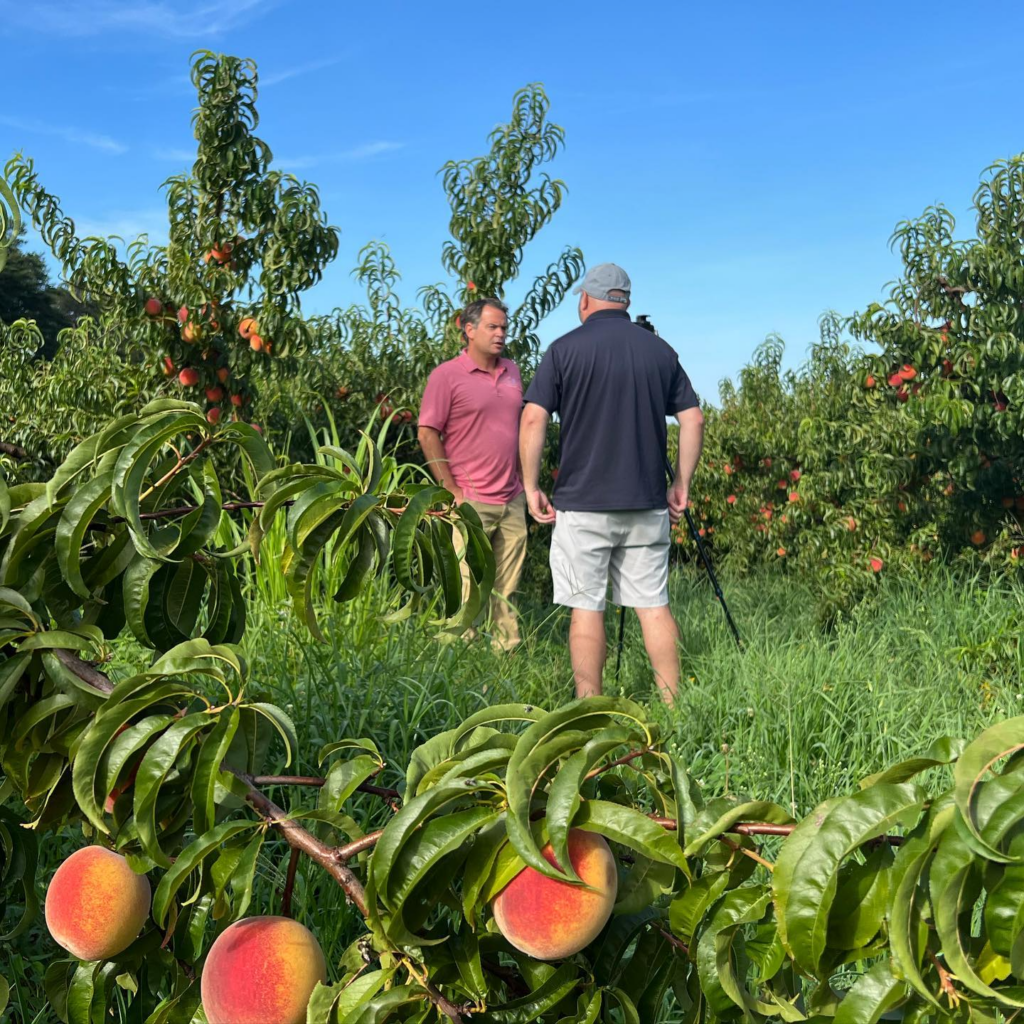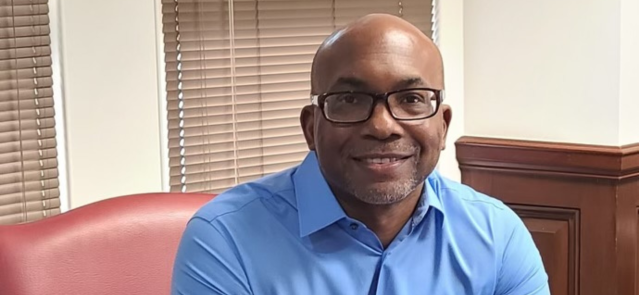Stay ahead of the curve as a political insider with deep policy analysis, daily briefings and policy-shaping tools.
Request a DemoKemp takes veto scalpel to FY 2024 budget, trimming millions, delaying spending

Gov. Kemp at ABAC for ag bill signing
Blueberries are a small part of what vineyard owner Darlene Roberts grows on her nearly 9-acre spread in Byron, but she hopes the crop will play a bigger role in future earnings for her farm.

Roberts’ plan, however, could be stymied by Gov. Brian Kemp’s recent vetoes. The governor has put on hold $200 million in spending and vetoed about $30 million in projects, including $1 million intended for advisory and agricultural research jobs that would help peach, citrus and blueberry farmers like Roberts.
“Taking out that part would be detrimental to the farmers,” said Roberts, 54, who mostly grows muscadine grapes and some other crops. “It means a lack of growth for my farm. It’s a major lack of finances to keep operating the farm. Everything that’s on the farm is there to produce income and to help the people [in the community].”
What’s Happening
Disappointment with the veto setbacks extends beyond Roberts’ farm to the Georgia Legislature, where some lawmakers were caught off-guard by Kemp’s decision to prune the $32.4 billion fiscal year 2024 state budget.
“I’m very disappointed personally and our peach industry and the entire agricultural industry is really disappointed in that veto,” state Rep. Robert Dickey, R-Musella, told State Affairs.

Dickey is chairman of the state House Agriculture and Consumer Affairs Committee, one of Georgia’s most powerful legislative committees. The lawmaker, who grows peaches and other crops on his family farm in Crawford County, said the veto surprised him.
“I never had any feedback or input from them that they didn’t want to do that,” Dickey said. “I’m still hopeful that we can have some discussion with the governor. We just think it’s important.”
The veto is especially painful after a round of cold snaps this spring, leaving Georgia peach growers with the worst peach crop in 25 years, Dickey said, adding that growers, including his farm, have lost over 90% of their peach crop this year. In a good year, Dickey said his farm harvests 300 truckloads of peaches that are sold to large grocery stores and other commercial outlets. This year, he said he’ll be lucky if he has enough to sell locally.
“We only have a small fraction of a crop this year, and this is becoming a pattern of short crops due to weather fluctuations,” said Dickey.
For that reason, he and Sen. Russ Goodman, R-Cogdell, a blueberry grower who chairs the Senate Agriculture and Consumer Affairs Committee, figured getting money for more agricultural researchers at the University of Georgia (Kemp’s alma mater) would be a slam dunk.
The money that was vetoed would have gone to “research and extension positions at UGA” to develop crop varieties that are more adaptive to changing weather conditions, Dickey said. “We need some new varieties that can withstand these variable weather [patterns] and are adaptive to Georgia.”

Analyst Danny Kanso called Kemp’s vetoes “short-sighted.”
“As Georgia remains on track to raise substantially more in tax revenue than it’s set to spend in FY 2023, these shortsighted budget cuts will harm our state’s already ailing health care system, pause deeply needed support for our lowest income families, and leave communities across our state worse-off ahead of the much-anticipated economic headwinds on the horizon,” Kanso, director of legislative strategy and senior fiscal analyst for the Georgia Budget & Policy Institute, told State Affairs.
State Affairs reached out several times to Kelly Farr, director of the Governor’s Office of Planning and Budget, for comment but got no response.
But state economist Jeffrey Dorfman told State Affairs the governor “is practicing fiscal conservatism.”
“The governor was very concerned with making sure that we did not use one-time money from previous budget surpluses to fund ongoing programs or expenses,” Dorfman said. “We do not want to be California which went from a $100 billion budget surplus to something like a $30 billion deficit because they took their one-time money and spent it on continuing things.”
Why It Matters
As it stands now, the budget will provide raises for teachers and law enforcement personnel and more tax refunds while the University System of Georgia takes a $66 million hit.
Despite that cut, USG’s Board of Regents announced on Tuesday it would not raise tuition at 25 of its 26 schools. The budget cut comes on top of a combined loss of $71.6 million in state money for FY 24 at 20 institutions due to a drop in enrollment.
“I look forward to working with Gov. Brian Kemp and the Georgia General Assembly to do everything we can to try to restore funding,” USG Chancellor and former Gov. Sonny Perdue said in a statement accompanying Tuesday’s tuition announcement.
USG’s challenge is just a part of the upcoming budgetary changes.
Lawmakers had passed a budget that included more than $43 million for retiree raises, free meals for school kids, bonuses for school maintenance workers and more pay for psychiatrist hospital workers. Those promises apparently won’t be kept due to the veto.
“Whether you’re a Republican, Democrat, rich or poor, everybody’s got somebody in their family that needs those additional services, and that’s where that money should have gone to,” state Rep. Rhonda Burnough, D-Riverdale, said, referring to impending cuts to mental health.
What’s Next?
While questions and concerns remain, some lawmakers are moving ahead.
“We look forward to working closely with Gov. Kemp and his staff over the coming months to help address his concerns leading up to the next budget cycle and legislative session,” state Senate Majority Leader Steve Gooch said in an email to State Affairs.
State Affairs contacted House Appropriations Chairman Matt Hatchett, R-Dublin, for comment. He did not respond.
“I respect the office of governor,” Hatchett told The Atlanta Journal-Constitution. Obviously, we have some disagreement.”
Meanwhile, Kanso, of the Georgia Budget and Policy Institute, had this advice for the governor and other state leaders: “Rather than preemptively subjecting our state to unnecessary and painful austerity measures, Georgia’s leaders must work to restore these funds in the FY 2024 budget.”
Find out here what Gov. Kemp vetoed.
You can reach Tammy Joyner on Twitter @lvjoyner or at [email protected]. Joyner is State Affairs senior investigative reporter in Georgia. A Georgia transplant, she has lived in the Peach State for nearly 30 years.
Twitter @STATEAFFAIRSGA
Facebook @STATEAFFAIRSUS
Instagram @STATEAFFAIRSGA
LinkedIn @STATEAFFAIRS
Header image: Gov. Brian Kemp speaks at Abraham Baldwin Agricultural College in Tifton, Georgia. (Credit: Office of the Governor)
Newly minted Senate Minority Leader Harold Jones II: ‘I’m not the typical back-slapping politician’
Nearly 10 years into legislative life, Sen. Harold Jones II wouldn’t change anything about the experience. “I love every minute of it. Even when I hate it, I love it,” the 55-year-old Augusta Democrat told State Affairs. Come January, Jones will add another role to his legislative duties: Senate minority leader, a job held for …
Gov. Kemp calls on state agencies to be fiscally restrained amid record $16.5B surplus
The Gist Gov. Brian Kemp asked the state’s 51 government agencies for continued fiscal restraint when drafting their amended fiscal year 2025 and 2026 budgets. Most agencies adhered to his request even as the state’s general fund surplus hit a record $16.5 billion last month. Forty-five agencies, excluding state courts, followed the governor’s instructions to …
Georgia defies bomb threats as election chief declares a “free, fair and fast” vote amid record turnout
ATLANTA – Despite dealing with over 60 bomb threats, Georgia’s election chief said Tuesday the state’s general election went smoothly. Georgia had a record turnout with nearly 5.3 million people voting, Secretary of State Brad Raffensperger told reporters. Election officials in the state’s 159 counties have until 5 p.m. to certify votes. “We had a …
In the (state)house: Meet the newest members of the Georgia legislature
When lawmakers reconvene at the state Capitol on Jan. 13, there’ll be a cadre of new faces in the 236-member Georgia General Assembly, one of the nation’s largest state legislatures. All 236 statehouse seats were up for election this year. Most candidates ran unopposed. Incumbents in contested races easily kept their seats, with the exception …




